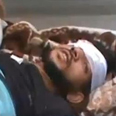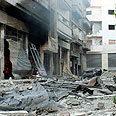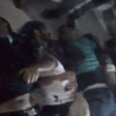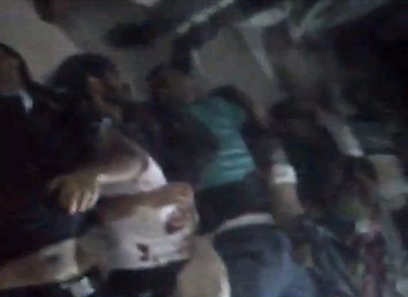



The UN singled out government forces Friday for blame in the latest massacre in Syria, a frenzy of killing that raises new questions about whether diplomacy has any chance to end the crisis more than 16 months into the bloodiest revolt of the Arab Spring.
As the violence turns ever more chaotic, analysts warn the effort by special envoy Kofi Annan has become nothing more than a pretense, with government forces, rebels, jihadists and others fighting for power.
Related stories:
- Iran confirms sending troops to Syria
US fears Assad relocating chemical stockpiles
Clinton says 'history will judge UNSC'
"Violence and escalation have outpaced political and international diplomacy," said Fawaz A. Gerges, director of the Middle East Center at the London School of Economics.
"I don't see a light at the end of the tunnel. ... All I see is more violence and more escalation, and this horrible massacre is another sign that Syria is spiraling out of control."
Bloodshed
Scores of people were killed Thursday when Syrian gunners bombarded the impoverished village of Tremseh with tanks and helicopters in what rebels claim was among the worst single days of bloodshed in the uprising against President Bashar Assad.
The accounts of the killings and death tolls varied widely. Late Friday, local activists backed away from early reports that more than 200 people were killed. One said he had confirmed 74, but had only 20 names. Another provided a list of 103 names.
For its part, the Syrian government said more than 50 people were killed when Syrian forces clashed with "armed gangs" that were terrorizing village residents. The regime refers to its opponents as terrorists and gangsters.

'Regime deliberately murdered innocent civilians.' Temseh killings
Much remains unclear about what happened in Tremseh, an isolated hamlet in Hama province, including why it was targeted and whether all of the dead were civilians. One activist group said dozens of victims were rebel fighters.
The killings fueled debate about what to try next to stop the violence, which activists say has killed more than 17,000 people despite several rounds of sanctions and increasingly frantic condemnation by the UN, the US and its Western and Arab allies.
Reflecting the deep frustration, activists held anti-regime protests across Syria on Friday under the banner "Remove Kofi Annan, the servant of Assad and Iran."
"Down with Annan, the agent of Iran!" protesters chanted in the town of Maaret al-Numan. Iran is one of the Syrian regime's strongest backers.
Chaotic violence
In a statement Friday, Annan said he was "shocked and appalled" by the reports of the attack on Tremseh, and condemned the government for using heavy weaponry in populated areas, something it was supposed to have stopped three months ago.
Maj. Gen. Robert Mood, head of the UN monitoring mission, told reporters in Damascus that a group of observers deployed about three miles (five kilometers) from Tremseh confirmed the use of heavy weaponry and attack helicopters, implicating the government.
The violence has grown increasingly chaotic over the course of the uprising, which began in March 2011 with mostly peaceful protests. Government forces launched a ferocious crackdown on the demonstrations, leading many people to take up arms.
Besides the government crackdown, rebel fighters are launching increasingly deadly attacks on regime targets, and several massive suicide attacks this year suggest al-Qaida or other extremists are joining the fray.
On Friday, Secretary of State Hillary Rodham Clinton expressed outrage over the killings in Tremseh and demanded that the Security Council take action to stop the violence.
"History will judge this council," she said. "Its members must ask themselves whether continuing to allow the Assad regime to commit unspeakable violence against its own people is the legacy they want to leave."
- Receive Ynetnews updates
directly to your desktop















